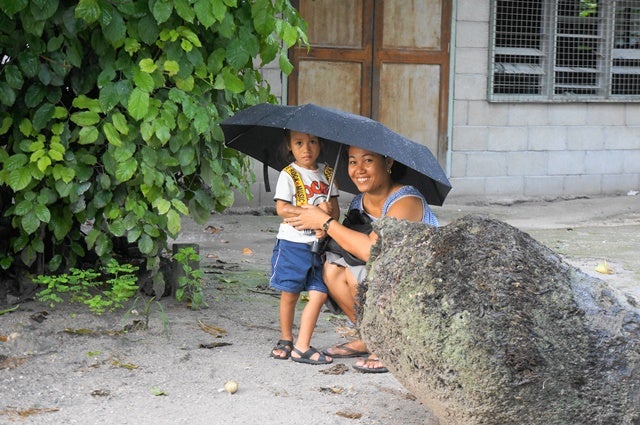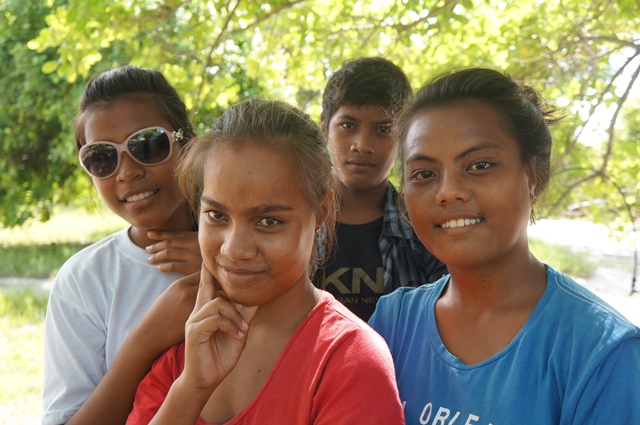THE relationship that parents nurture with their children will be critical when it is time to have "the talk" related to sexual and reproductive health and rights (SRHR) issues.
With her own sons and daughters, Marica Turaga (not her real name), said she nurtured a friendship with her children which created an enabling environment for open discussions. Sensitive issues like sexual and reproductive health and rights slid into this "safe space" by default.

"Obviously there was always a line that they never crossed with me, I was still their mother and I know that there were things they hid from me, but because we were friends first, there was always the understanding that they could talk about anything with me," Turaga said.
While most of her contemporaries were quite open and jovial with her, Turaga says a completely different set of dynamics defined their relationship with their own children, and most times, it was contrary to her approach.
Turaga and her husband, are an iTaukei couple who enjoyed full-time careers while bringing up their children, and the many other "cousins" who needed a home while pursuing higher education in the capital.
The Turagas now enjoy playing grandparents. Mrs Turaga, though, continues to enjoy a professional life, believes parenting styles are repeated by children when they become parents themselves.
"Children for the most part have only one example of parenting and they are more likely to do exactly the same. But children who rebelled, especially against the parenting style their parents preferred are most likely to change the status quo because they would have grown up thinking they would never do parenting the way their parents did," Turaga said.
"Mothers are usually closer to their children and vice-versa, we have an opportunity to ensure open discussions at home if we nurture a relationship from their childhood.
"And it (SRHR discussions) becomes easier as they grow older.
"Generally speaking it is harder in the more traditional set-up but even iTaukei families in urban areas still do not talk about SRHR openly."
Reproductive rights and reproductive health is defined as a state of complete physical, mental and social wellbeing and not merely the absence of disease and infirmity, in all matters relating to the reproductive system, its functions and processes. Reproductive health therefore implies people are able to have a safe and satisfying sex life, couples have the capacity to reproduce and the freedom to decide if, when and how often to do so.
Therefore SRHR issues, which is one of the mandate areas of the United Nations Population Fund (UNFPA), range from the prevention of sexually-transmitted infections including HIV (commodities like condoms), to ensuring that mothers experience a safe child birth (maternal health) to creating an enabling environment for the accessibility of contraceptives to all people without fear or prejudice (the right to choose the number of children you have and when to have them).
The world is now home to 1.8 billion young people between the ages of 10 and 24, and the youth population is growing fastest in the poorest nations. Within this generation are 600 million adolescent girls with specific needs, challenges and aspirations for the future they want.
Apart from education, investment in health especially sexual and reproductive health will be central to a common future of sustainable growth. A healthy populace is a prerequisite to the realisation of our full potential in both economic and social progress, both as individuals and as a nation.
Yet as I write, one in seven of all new HIV infections occur during adolescence. Today, up to half of all sexual assaults are committed against girls below the age of 16 while one in three girls in developing countries is married before the age of 18, threatening her health, education and future prospects.
Apart from socio-cultural realities which continue to be a barrier to frank discussions around sexual and reproductive health issues, more often than not, the lack of effective communication between parents and children to ensure adolescents receive correct and timely information (trusted sources) on SRHR remain one of the most damaging of all cultural barriers, globally.
UNFPA Pacific high-level champion Dr Jiko Luveni says parents today are more likely to have reached higher education, who know the issues and what their children may be going through, and are a lot more willing to talk about things.
Dr Jiko said she believed there was a willingness from women to educate their own children on issues related to sexual and reproductive health and rights. She added these were indeed areas which couldn't be left to teachers, faith-based or even traditional leaders.
"What they need however is what to communicate, particularly our mothers, they are more willing to be the ones who help their children but we do need to ensure that they have the information and the confidence to communicate such issues to their children," Dr Jiko said.
"Young people are more likely to listen to their peers than their parents if parents have not developed a relationship that will enable children to communicate such issues with them. If they don't have that relationship, they (youth) will turn to their peers."
UNFPA Pacific Sub-Regional Office director and representative Dr Laurent Zessler said it was indeed critical that the correct, timely and age-appropriate information was shared to children and youth.
"We are giving our children a very good start in life already just by empowering them with correct and timely information," Dr Zessler said.


